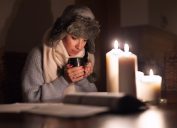9 Essential Tips to Winter-Proof Your Home
Experts share their best advice to prepare your space for the cold season.

As colder temperatures creep in, many of us are already thinking ahead to the pleasures of staying indoors more often, and avoiding the icy elements outside. But just as you'd bundle up before going out into the cold, your home needs protection from winter weather as well. Without the proper preparation beforehand, you could end up seeing more pests, higher energy bills, and costly damage in the coming months. To avoid this, read on to discover nine essential tips to winter-proof your home.
RELATED: 10 Mistakes You're Making That Keep Your House Cold, Experts Say.
1
Get your trees checked.
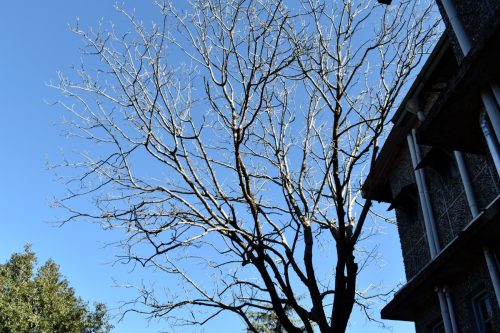
Fallen trees can end up becoming a huge financial burden—especially if they fall on your house or car. So, now is a "good time to get a check-up and make sure your trees are ready for winter storms," says Blake Watkins, operations partner at Monster Tree Service and International Society of Arboriculture (ISA) board-certified master arborist.
According to Watkins, you can get a free health assessment from an ISA board-certified arborist.
"It can be difficult after leaves fall to tell live branches from dead ones," he notes. "Trained professionals can recognize hazards and diseases even without leaves."
2
Rearrange your furniture.

Seasonal depression is also a worry during the winter months, because there is less sunlight. In order to avoid this, Artem Kropovinsky, interior designer and founder of Arsight, recommends rearranging your furniture to "capitalize on available sunlight."
According to Kropovinsky, this can be done by positioning your seating near windows.
"Over-relying on artificial lighting can lead to a mood dampened by lack of natural light," he warns.
RELATED: Farmer's Almanac Predicts Extra Snowy Winter: What to Expect in Your Region.
3
Make sure your doors and windows are properly sealed.
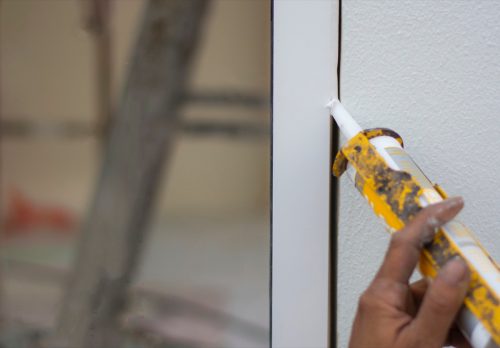
You should do a walk around your house and make sure everything is in order ahead of the winter, according to Ryan Farley, home expert and CEO of LawnStarter.
"The temperature is already dropping, so now is the perfect time to make sure the seal around doors and windows isn't damaged or faulty," he says.
When these things are properly sealed, you can keep cold air out and lower your energy bill because the heat doesn't have to work harder, Farley explains.
"Fill in any cracks around the home as well," he advises. "If water gets in the cracks and freezes, it can make the crack worse."
4
Clean up outdoor clutter.
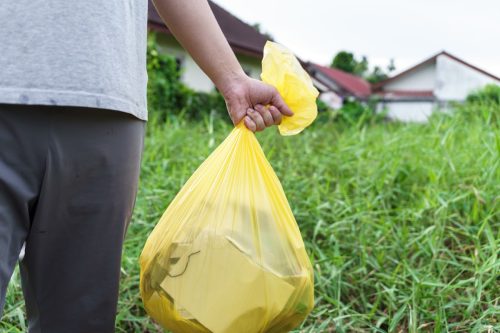
Don't forget to check the area around your home, too. Emma Grace Crumbley, entomologist at Mosquito Squad, tells Best Life that cleaning up outdoor clutter is essential to prevent pests that will be looking for shelter from the cold.
"Insect pests can use children's toy sets, gardening supplies, and other yard debris as hiding spots," she cautions. "Trim back bushes, shrubs, and grass as well, as these areas can serve as hiding spots and highways pests can use to enter your home."
You should also be mindful of woodpiles around your place, according to Crumbley.
"Untouched wood piles can home many different kinds of pests, from ants to termites to ticks," she says. "Moving your woodpiles away from the home lowers the risk of these pests entering it."
5
Clear your gutters.
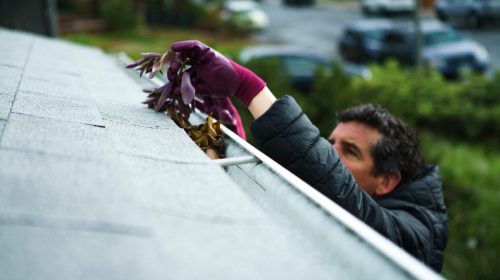
Those gutters need to be tackled, too, Bryan Clayton, landscaping expert and CEO of GreenPal, reminds homeowners.
"Water needs a clear path off your roof," Clayton explains. "As a result, clogged gutters can lead to roof rot and ice dams. So make sure they're free of leaves and other debris."
RELATED: 8 Tips to Prepare for a Winter Power Outage, According to Experts.
6
Blow out your sprinkler system.
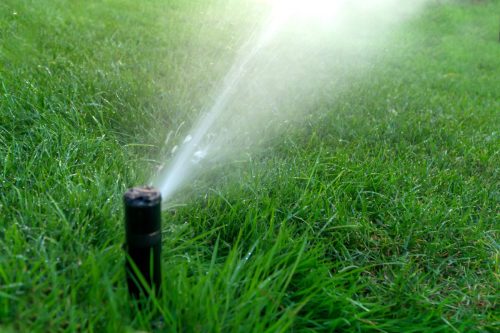
Sprinklers are a useful tool for watering your lawn and keeping things green in the warmer months. But you'll need to blow your sprinkler system out before the winter weather hits to prepare it for colder temperatures, according to Clayton.
"If you have a sprinkler system, make sure it's emptied before the first freeze," he recommends. "Leftover water can freeze and damage the pipes, leading to burst pipes and costly repairs."
7
Check your carbon monoxide detectors.
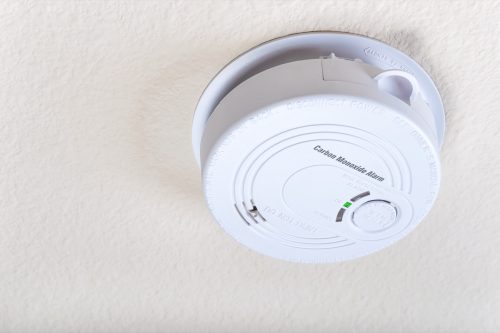
Don't ignore your carbon monoxide detectors before the winter season either. If you haven't tested yours in a while, now is the time to do it, according to Michael Gottron, home expert and owner of Germicidal Maids.
"This is vital because heating systems can produce carbon monoxide, making detectors indispensable for safety," he warns.
RELATED: I'm a Property Expert and These Are the 5 Things That Devalue Your Home.
8
Protect your plumbing.
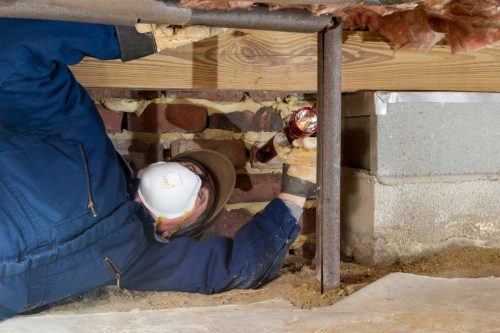
Like sprinklers, indoor pipes can also freeze and burst because of colder temperatures. Most people have learned to protect their plumbing over time—except for when it comes to pipes in attics and crawlspaces, according to Brian Benham, an expert in building and remodeling homes.
"These areas are the forgotten areas of your home, and they are often not heated," he says.
According to Benham, you should have the plumbing in these places insulated before the winter to prevent any potentially costly problems.
"An uninsulated crawlspace with uninsulated pipes is a recipe for frozen pipes that can burst," he shares.
9
Incorporate draft-proofing elements.
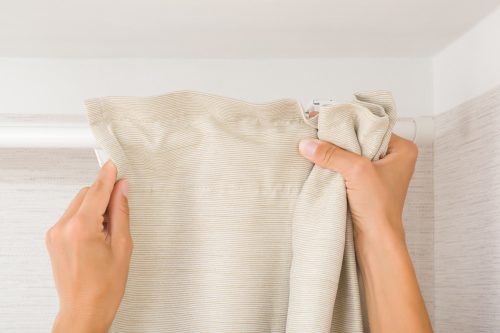
Sealing up every crack in your home might seem daunting, but you can start small by at least "incorporating draft-proofing elements" before the winter, Kropovinsky suggests. According to the home expert, this can include things like thick curtains or draft stoppers.
"These elements reduce chilly drafts, leading to more comfort and potentially lower energy bills," he says.
For more home advice delivered straight to your inbox, sign up for our daily newsletter.

